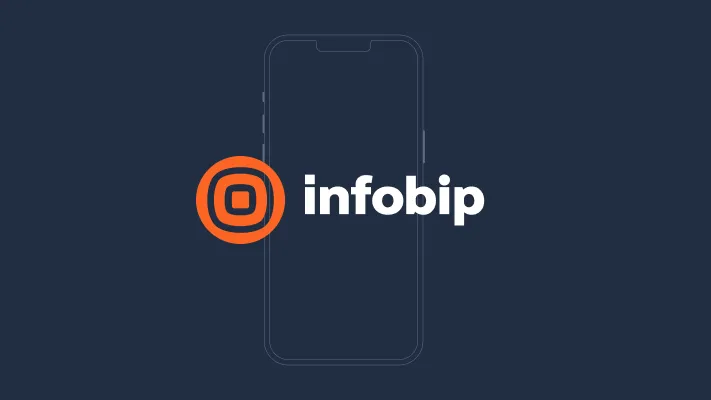What is HLR (home location register)?
Home Location Register (HLR) is a database of all active customers of a mobile network, including their number, service entitlement, and number porting history.
Whenever a mobile device makes a connection with a mobile network a Message Switching Center (MSC) will access the network providers HLR and use their International Mobile Subscriber Identity (IMSI) code to check what services the subscriber is allowed to access as part of their contract.
A subscriber will stay on the HLR of their operator until they cancel their contract, or it expires.
What is the Home Location Register Lookup (HLR Lookup)?
The HLR Lookup is the service that dynamically contacts the central HLR database at the network operator’s side to check if a particular subscriber is authorized to use the GSM core network.
Is the Home Location Register secure?
As the HLR contains important personal data, including subscribers’ last known location, you may be worried that anyone could access it. Rest assured that the database is not publicly available and is protected by the same security that mobile operators use for their own proprietary data.
Note that in most territories law enforcement agencies can request data from the HLR as part of an investigation when a crime has been committed.
Infobip’s HLR service is called Number Lookup.
How do home location registers operate?
Home Location Register is a central database that stores information about mobile subscribers. Here’s a simplified breakdown of how it operates:
- Subscriber information: Each mobile subscriber’s data is stored in the HLR, including their phone number, service subscriptions, and location information.
- Network connection: When a mobile device connects to a network, the network queries the HLR using the subscriber’s IMSI (International Mobile Subscriber Identity).
- Authentication and service provisioning: Home Location Register verifies the subscriber’s identity and checks their subscribed services. This allows the network to provide the correct services, such as voice calls, SMS, and data.
- Location updates: Home Location Register keeps track of the subscriber’s current location by communicating with Visitor Location Registers (VLRs) in different areas. This is essential for routing calls and messages.
- Roaming: When a subscriber roams outside their home network, the HLR helps with authentication and service provisioning in the visited network.
In essence, the HLR acts as a central hub for managing subscriber information and ensuring seamless communication services.
What other uses does HLR offer?
Besides its core function in mobile networks, Home Location Register data has become quite valuable for businesses in various ways. Here are some key uses:
- Data cleansing and validation: HLR lookups help clean up customer databases by verifying the validity and status of phone numbers. This ensures businesses are contacting real, active users, reducing wasted resources and improving communication effectiveness.
- Fraud prevention: HLR data can be used to identify suspicious activity, such as SIM swaps or number porting, that might indicate fraudulent attempts. This helps businesses protect themselves and their customers from potential scams.
- Marketing optimization: By understanding the location and network information of their audience, businesses can tailor their marketing campaigns more effectively. This includes sending targeted messages, optimizing ad spend, and personalizing content for better engagement.
- Enhanced customer service: HLR lookups can help businesses identify the network operator, enabling them to route calls efficiently and provide better support.
- International compliance: Businesses can use Home Location Register data to comply with international regulations and ensure they are not contacting numbers on “Do Not Call” lists or in countries with specific communication restrictions.
What are the benefits of HLRs?
Home Location Register offers numerous benefits, making it a crucial tool for businesses that rely on mobile communication. Here are some key advantages:
Improved communication efficiency
- Accurate contact information: Home Location Register lookups validate phone numbers, ensuring you reach real and active users, reducing wasted effort and improving deliverability rates for SMS and voice calls.
- Reduced costs: By eliminating invalid or inactive numbers, businesses can optimize their communication spend and avoid unnecessary charges.
- Enhanced customer experience: With accurate contact details, businesses can provide timely and relevant information to their customers, improving satisfaction and loyalty.
Increased security
- Fraud prevention: Home Location Register data helps identify potentially fraudulent activities like SIM swaps, protecting businesses and their customers from scams.
- Data protection: By verifying phone numbers, businesses can ensure they comply with data privacy regulations and avoid contacting individuals who have opted out.
Better marketing and business decisions
- Targeted campaigns: HLR data provides insights into customer location and network information, enabling businesses to tailor marketing messages for better engagement.
- Global reach: Home Location Register supports international communication, helping businesses expand their reach and connect with customers worldwide.
- Data-driven insights: HLR data can be analyzed to understand customer behavior and preferences, helping businesses make informed decisions.
What is a Visitor location register (VLR)?
A visitor location register (VLR) is a database that stores information about mobile subscribers who are currently roaming within a specific geographic area covered by a Mobile Switching Center (MSC). Similar to the HLR, the VLR holds essential subscriber data like your phone number, location information, and subscribed services.
This allows the visited network to provide you with the services you need while you’re roaming.
FAQs
Keep on exploring
Read some of our latest blog posts

10DLC vs short code vs toll-free: How to choose the right number
Learn the key differences between 10DLC, short code, and toll-free numbers for SMS campaigns and discover which option is best for you.

Number Masking: A Crucial Component for Privacy Centered CX
With an increasingly digitalized world, we look at how a privacy-centric technique can better protect customer communities from leaked private information getting into the wrong hands.

What is Number Lookup & how to use it for number validation
All you need to know about number validation, a step-by-step code tutorial through Number Lookup queries and functionalities.







